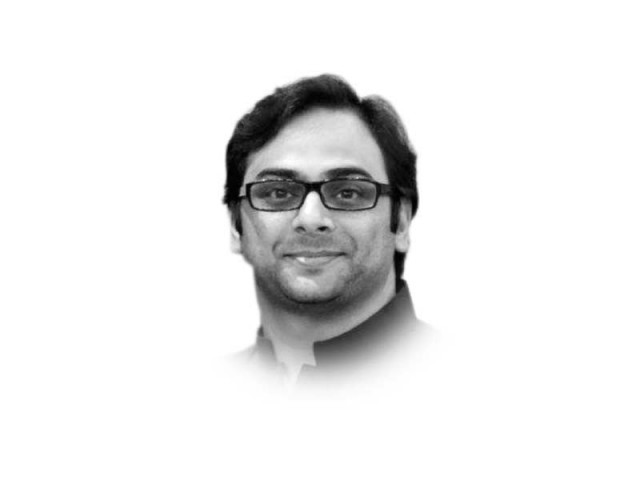Fractured unity
Once a judiciary, which was bi-partisan and above their own biases, is now enslaved thereunder

The lawyers’ movement for restoration of judiciary began on 9th March 2007 in response to the former President and Army Chief Pervez Musharraf’s illegal actions. As a result of the Lawyer’s Movement, Justice Iftikhar Muhammad Chaudhry was reinstated as the Chief Justice of Pakistan on 17th March 2009.
Bar Associations and Bar Councils played an important role in raising awareness about the need for rule of law and independence of judiciary with the general public. They educated the masses by holding rallies and press conferences. Bar leaders and representatives vigorously debated on the importance of an independent judiciary and the rule of law. Finally on 18th August 2008, before the commencement of impeachment proceedings against him, in a televised address Pervaiz Mushrarraf announced that he would resign and soon after went into exile. Unfortunately, he had already issued an NRO which granted amnesty to politicians, political workers and bureaucrats who were accused of corruption, embezzlement and money laundering in October 2007.
I believe the reason behind the huge success of this lawyers’ movement was the unity amongst the legal fraternity which prevailed from the smallest bar association to the Supreme Court Bar Association and even the Pakistan Bar Council. It was this unity that was subsequently targeted by political parties and agencies as they soon realised that as long as this fraternity stays divided, such effective stands would be impossible in the future and they will not be able to stand up against anyone.
The same formula was also applied to the judiciary. The agencies and political parties have successfully infiltrated the ranks and divided them. Today the superior courts are not just divided on legal and political issues but also have personal issues to resolve. Once a judiciary, which was bi-partisan and above their own biases, is now enslaved thereunder.
Somewhat similar judicial crisis occurred when Justice Sajjad Ali Shah was appointed as CJP in preference to three of his senior colleagues. Justice Sajjad had recommended five judges for elevation to the Supreme Court. There was strong resistance by the executive and in order to defeat the recommendations the government notified a reduction in the number of judges of the Supreme Court to twelve from seventeen. Justice Sajjad suspended the notification which was later withdrawn by the government. Nawaz Sharif, the then Prime Minister, subsequently ordered notification of appointment of these judges. Later the Fourteenth Amendment was suspended by the Chief Justice. A strong reaction by Prime Minister Nawaz Sharif saw contempt proceedings initiated against him in Supreme Court.
By November 1997 the confrontation had spread and the battle lines were drawn between the Executive and the Parliament on the one hand and the president and the CJP on the other.
In this situation, a delegation of Bar representatives belonging to the PBC, SCBA Lahore HCBA and the Punjab BC went to Supreme Court to make a final effort to save the Court from complete dissipation and humiliation. They initially faced a lot of resistance but were eventually able to bring together all seventeen judges of the Supreme Court in the same room. The delegation requested all the judges to sort out their differences and save the image of the judiciary from being tarnished. Although the Bar might not have been successful in bringing both factions of judges together, they at least tried.
Back then the bar was united and most importantly understood its role. It was imperative for them to save the image of the institution. Unfortunately today we are witnessing a fractured bar. Today the bar stands divided on political principles and affiliations. Rule of law and independence of the judiciary cease to be their priority. There were political affiliations before as well, but when it came to the independence of judiciary and the rule of law, all political alliances were kept aside. The lawyers stood up to be the bulwark of the judiciary. Fracturing the unity of the bar is a major achievement for the ruling establishment, political parties and intelligence agencies who had always dreamt of this ideal fracture. The great black coats of this country who once removed the strongest military dictator and forced him in self-exile today are unable to even fight and protect their own institutions.
Bar rooms were once places from where political awareness spread to the masses. Today, with regret they have become a place for non-political events. We can only blame ourselves for this deterioration. We have spent too much time glorifying our past that we have forgotten to pave our future.
The bars must unite now and not just fight to save its institutions but also save itself from further humiliation. This year the country will witness another general election and a new CJP. The bar must unite and fight for law reforms and stability in the courts. We must not forget that the dignity of the black coat is in unity and in its independence.
Published in The Express Tribune, April 15th, 2023.
Like Opinion & Editorial on Facebook, follow @ETOpEd on Twitter to receive all updates on all our daily pieces.














COMMENTS
Comments are moderated and generally will be posted if they are on-topic and not abusive.
For more information, please see our Comments FAQ